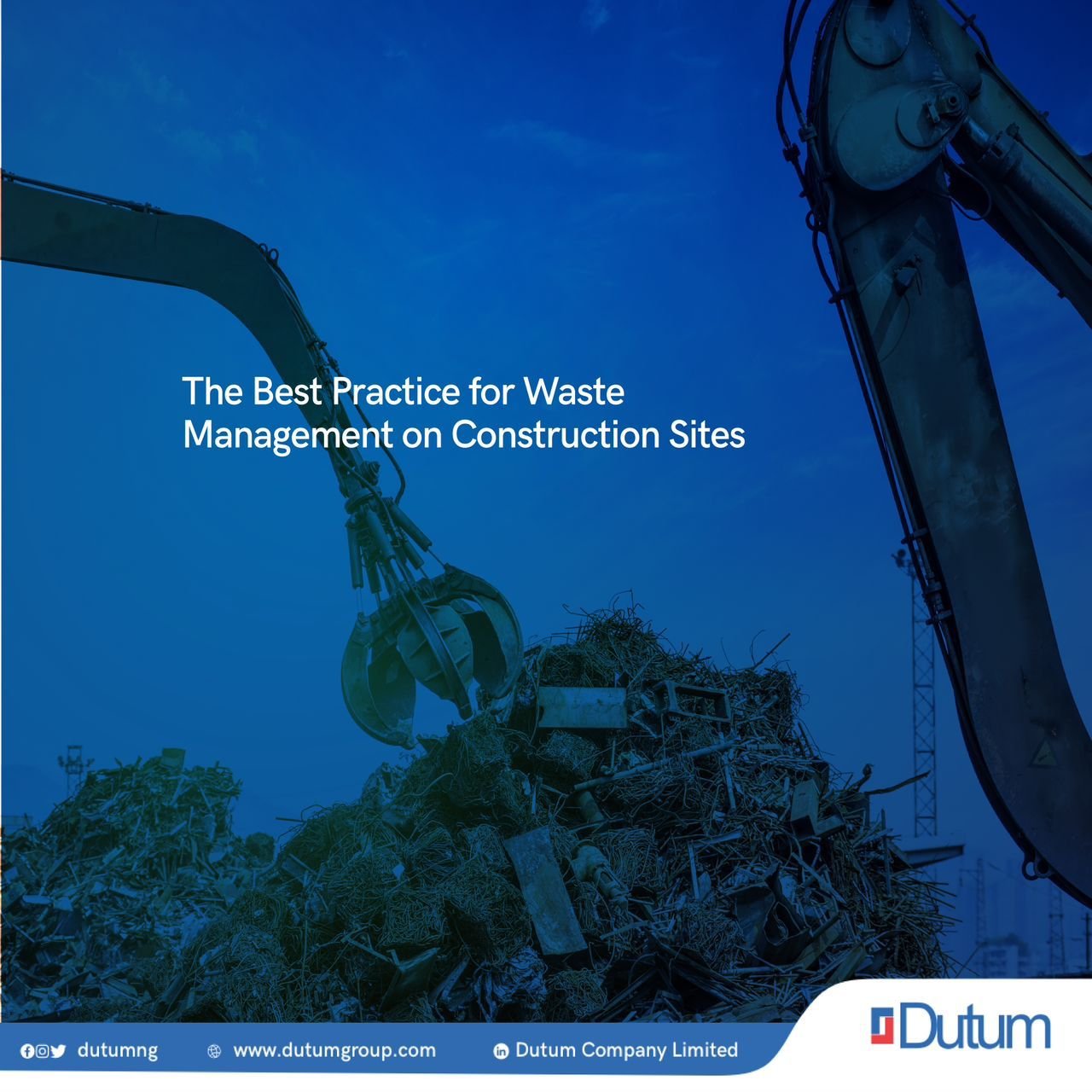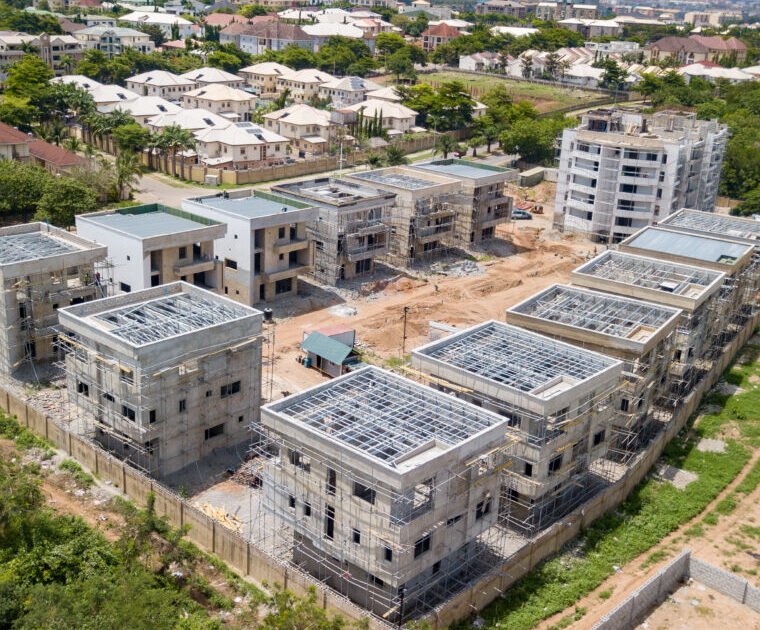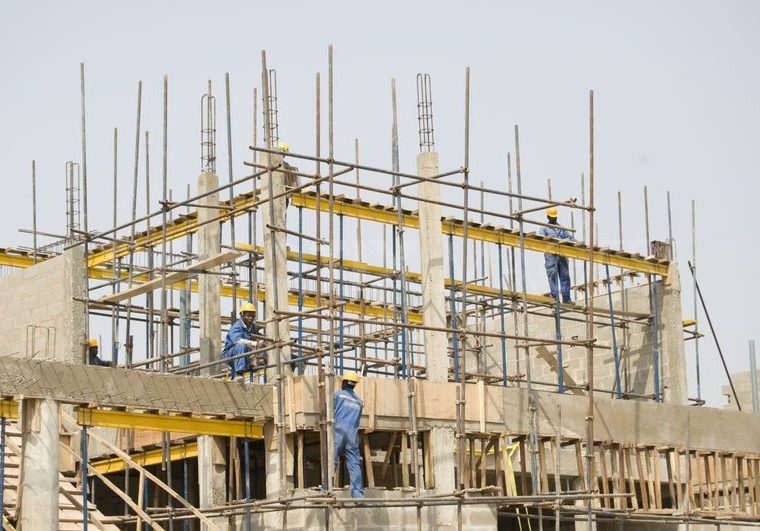As the construction industry in Nigeria continues to expand, it is imperative to implement effective practices for waste management in construction sites. The growing amount of waste generated on these sites poses a significant threat to both the environment, the health and safety of workers and the public. Therefore, it is necessary to adopt industry-standard practices to mitigate the negative impacts of construction waste and promote sustainability.
In this blog post, we will explore some of the most effective ways to handle and dispose of construction waste in Nigeria, and discuss why adopting these best practices is not just a legal requirement, but also a moral obligation towards our planet and future generations. So, whether you’re a construction professional, a concerned citizen, or just someone who cares about the environment, read on to learn more about how you can make a positive impact on waste management in Nigeria.
Importance of waste management on construction sites in Nigeria
Construction waste is a significant contributor to the solid waste stream in Nigeria. The construction sector generates around 40% of the total waste generated in the country. The poor management of construction waste can cause a range of environmental and health problems, including soil and water contamination, air pollution, and disease outbreaks. Proper waste management is, therefore, critical for environmental protection, public health, and sustainable development.
Challenges of waste management on construction sites in Nigeria
Despite the importance of waste management, several challenges hinder effective waste management on construction sites in Nigeria. These challenges include:
- Inadequate waste management infrastructure
- Limited awareness of waste management practices
- Inadequate regulatory frameworks.
In addition, the high cost of waste management and the lack of incentives for proper waste disposal discourage many construction firms from implementing effective waste management practices.
Best practices for waste management on construction sites in Nigeria
Effective waste management on construction sites requires the adoption of best practices that minimize waste generation, promote waste reduction, and ensure proper disposal of waste materials. The following are the best practices for waste management on construction sites in Nigeria.
- Developing a Waste Management Plan
- Segregation of waste at the source
- Recycling and Reuse of waste materials
- Proper disposal of hazardous waste
- Waste reduction and minimization
- Conducting Waste Audits
- Providing Adequate Waste Storage Facilities
- Providing Training and Awareness to Construction Workers
1. Developing a Waste Management Plan
Developing a waste management plan is the first step toward efficient waste management on construction sites. A waste management plan outlines the procedures and strategies for waste management, including waste segregation, storage, transportation, and disposal.
2. Segregation of waste at the source
The next step in effective waste management is the segregation of waste at the source. This involves sorting waste materials into different categories, such as recyclable, non-recyclable, hazardous, and organic waste. The segregation of waste makes it easier to manage waste materials, promotes recycling and reuse, and reduces waste disposal costs.
Related: The Top 10 Construction Equipment Used In Nigeria
The best safety measures for construction sites in Nigeria
3. Recycling and Reuse of waste materials
Recycling and reuse of waste materials are crucial for sustainable waste management. Recyclable waste materials, such as plastic, glass, and metal, can be transformed into new products, reducing the need for virgin materials and conserving natural resources. Similarly, waste materials, such as construction debris, can be reused for landscaping, road construction, or as building materials in other construction projects.
4. Proper disposal of hazardous waste
Hazardous waste, such as chemicals, asbestos, and medical waste, can pose a significant risk to human health and the environment. Proper disposal of hazardous waste is, therefore, critical for effective waste management. Hazardous waste should be separated from other waste materials and disposed of in specialized facilities that comply with environmental regulations.
5. Waste reduction and minimization
Waste reduction and minimization involve strategies that aim to minimize waste generation in the first place. This can be achieved through the adoption of sustainable design practices, such as the use of prefabricated materials, modular construction, and sustainable building materials. The use of digital technologies, such as Building Information Modeling can also help reduce waste by optimizing the use of materials and minimizing errors during construction.
6. Conducting Waste Audits
Conducting regular waste audits helps to identify the types and quantities of waste generated on the construction site. This information can then be used to develop effective waste management strategies.
7. Providing Adequate Waste Storage Facilities
Adequate waste storage facilities are essential for efficient waste management on construction sites. Waste storage facilities should be located in areas that are easily accessible and should be designed to prevent waste from contaminating the environment.
8. Providing Training and Awareness to Construction Workers
Training and awareness are essential for efficient waste management on construction sites. Construction workers should be provided with training on waste management, including proper waste segregation and disposal. This will help to ensure that everyone on the construction site is aware of the importance of waste management and their role in ensuring efficient waste management.
Related: The Importance of Quality Control in Construction
10 Benefits of Hiring an Indigenous Construction Company in Nigeria
Benefits of proper waste management on construction sites
Proper waste management on construction sites has several benefits, including:
- Environmental protection: Proper waste management reduces the environmental impact of construction activities, such as soil and water contamination and air pollution.
- Resource conservation: Recycling and reuse of waste materials conserve natural resources, reduce the need for virgin materials, and save energy.
- Cost savings: Effective waste management can reduce waste disposal costs and avoid potential fines and penalties for non-compliance with environmental regulations.
- Improved public health: Proper waste management reduces the risk of disease outbreaks and other health hazards associated with poor waste management practices.
Related: The Role of Technology in the Nigerian construction industry
Types of foundation used in the Nigerian construction industry
Concluding the Best Practices for Waste Management on Construction Sites in Nigeria
Effective waste management is crucial for any construction project in Nigeria. By implementing the best practices given in this blog post, we can minimize the negative impact of construction activities on the environment.
As we move towards a more sustainable future, it’s important to recognize that waste management is not just a responsibility of governments and waste management companies, but of everyone involved in the construction industry. We must all take responsibility for our actions and strive to minimize waste generation and properly dispose of any waste that is produced.
Dutum construction company places a high priority on sustainability in our construction practices. We remain dedicated to implementing sustainable waste management practices and encourage others to join us in our efforts. By choosing our company for your construction projects, we can work together to build a more sustainable future for Nigeria.
Frequently Asked Questions
What is construction waste?
Construction waste refers to any waste generated during construction activities, such as construction debris, packaging materials, hazardous waste, and other waste types.
Why is proper waste management important on construction sites?
Proper waste management is critical for environmental protection, public health, and sustainable development. The poor management of construction waste can cause a range of environmental and health problems, including soil and water contamination, air pollution, and disease outbreaks.
What are the best practices for waste management on construction sites?
The best practices for waste management on construction sites include waste segregation, recycling and reuse of waste materials, proper disposal of hazardous waste, composting of organic waste, and waste reduction and minimization.
What are the benefits of proper waste management on construction sites?
Proper waste management has several benefits, including environmental protection, resource conservation, cost savings, and improved public health.
How can construction firms implement effective waste management practices?
Construction firms can implement effective waste management practices by adopting sustainable design practices, providing waste management training for employees, and partnering with waste management service providers.






6 Comments